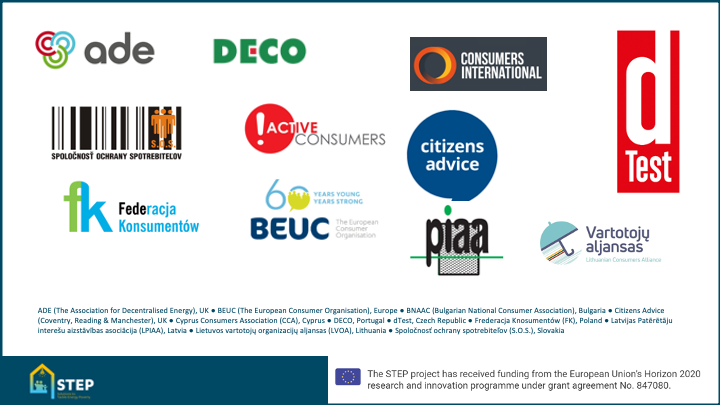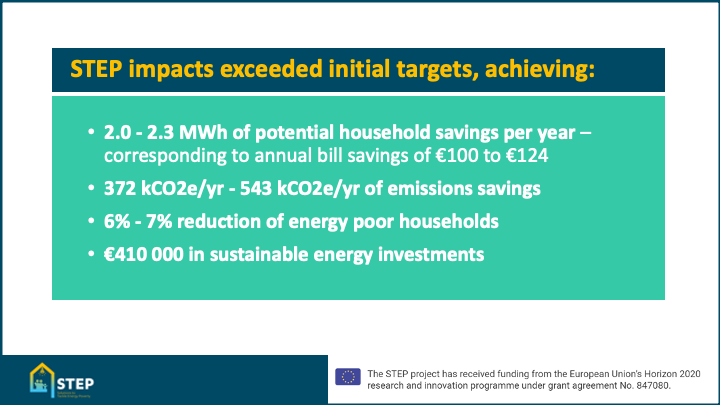Over three years, the Solutions to Tackle Energy Poverty (STEP) project empowered >16 000 consumers in (or at risk of) energy poverty with energy efficiency advice. To boost positive impacts, it now calls on energy companies and policymakers to engage in scaling up proven solutions.
Working in nine countries across Europe known to have high numbers of energy-poor households, STEP sought to bring about positive change in line with its three primary objectives:
- Provide advice to consumers in or at risk of energy poverty
- Train new energy advisors to educate consumers on energy poverty
- Lead advocacy efforts to national governments and EU institutions on energy efficiency and energy poverty
Importantly, the project was led by a coalition of 11 EU-based consumer and research organisations.

STEP implemented direct and indirect strategies to help people and inform policy change, tailoring solutions across three main areas to local contexts:
- Facilitate one-to-one sessions between consumer groups and experts on topics such as energy, finance and health.
- Educate consumers on how to improve their overall living standard through information campaigns, energy-savings tips and more.
- Disseminate best practices for policy choices to reduce levels of energy poverty in the participating countries and across the EU.
Across all countries, STEP encountered the challenge that households in energy poverty are difficult to reach. Collaboration with trusted sources, such as frontline workers (e.g. social workers, nurses, volunteers, energy ombudsman and energy suppliers) proved an effective strategy to indirectly identify ‘who’ needed help.
For one-to-one sessions, STEP found that it is important to offer interventions truly tailored for a given household and avoid a tendency for such meetings to become an exercise in ‘ticking boxes’ according to a formula.
Once working with households, STEP quickly found that energy consumption patterns varied significantly. Disseminating relevant energy savings advice was then central to helping vulnerable consumers cope with their immediate situations.

To create meaningful change for vulnerable households, STEP emphasised the need for comprehensive and coherent policies both across the EU and at national and local levels. As such, STEP calls for amendments to the Energy Efficiency Directive (EED), complemented by parallel action in national policies.
STEP recommendations for national entities include:
- Define energy poverty at the national level
- Introduce a comprehensive strategy for eradicating energy poverty in national legislation
- Ensure energy efficiency programmes are inclusive
- Roll-out dedicated one-stop shops to provide information and support for energy renovations
- Provide all-important information in user-friendly energy bills.
While inconsistent data made it difficult to precisely quantify impacts, STEP was able to show that its interventions exceeded initial targets.

To find out more about the project results, click here.